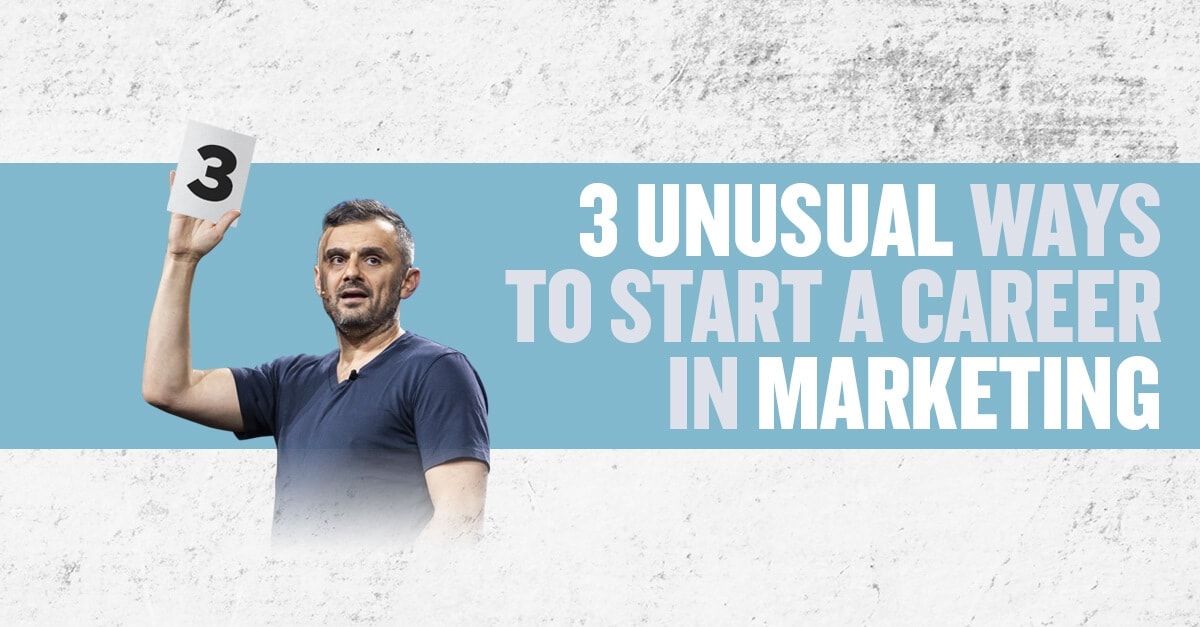One of the unique things about a career in marketing is there’s no right path to success. Even the definition of success is up to you. So we compiled guests from the Marketing For The Now series who are living proof that if marketing’s your passion, there are countless ways to get there. From national champions to chance encounters, here are just a few of these leaders’ unconventional paths to success.
How did you find success in marketing?
Musa Tariq (Advisor, Masterclass): “That’s a great question. [At first], I was adamant I wanted to be a banker. I was growing up in London, I wanted to drive a fast car…unfortunately, halfway through university I lost both my parents. I had to pivot. [Later], I met someone who told me to do something I love with my life, and I would do well. I loved marketing, but there was no one for me to talk to about it. LinkedIn wasn’t around and Facebook had only just started and there was no way to connect with people.
It was really, really hard. It only happened because one individual who worked in marketing happened to sit next to me while I was in a restaurant. We randomly started talking, and he sort of guided me [into that world]. His name was Michael Inpong and he’s a marketing director in the UK. [Our connection] was as random as him sitting next to me in a restaurant.
I once heard a story: luck is chance versus opportunity. If you don’t put yourself in [ideal] situations, the opportunity will never present itself.
Can you talk about your non-traditional path to marketing?
Jen Sey (CMO of Global Brands, Levi Strauss&Co.) : Haha, well I’ve certainly had an unusual childhood; I was an elite gymnast. At five years old, with an unnatural combination of discipline, commitment, and a degree of talent I got [on the national team]. I was there for eight years and I was the national champion in 1986. I wrote a book about my experiences and was featured in the Netflix documentary, Athlete A.
A national championship? You must have been on top of the world.
Jen: Unfortunately, despite my success, I left the sport pretty emotionally broken. There’s a culture of coaching cruelty that, I would say, is pretty dominant in the sport. Not every coach practices it, but it’s way way too common.
So, what drew you to make the switch to marketing?
Jen: It was challenging. I went to college to figure my shit out, [which is hard] when you’ve spent the part of your childhood being told you’re garbage. You [eventually] begin to think you’re garbage. I kind of didn’t know who I was without [gymnastics].
What I love about marketing, specifically branding, is that it intersects art with science. Data analytics and gut perspective [intertwine]. You’re able to understand how the content can connect to the broader culture. I am competitive, I want to “win” in the market. But, I [truly] enjoy being a part of a team.
I avoided sports after gymnastics. [Now], I learned to manage my competitiveness and work for an awesome brand.
What was your path to a career in marketing, Thomas?
Thomas Ranese (VP of Global Marketing, Uber): [Actually], I had a pretty unconventional past. I often wonder how I got into marketing…what am I doing here? When I was a kid I wanted to be an actor.
How did you make the switch?
Thomas: I spent a lot of time working in policy and government. Soon, I became the CMO (Chief Marketing Officer) for the state of New York. Then, I went to the dark side — I started working for [big marketing agencies and financial firms]. You learn from those hardcore institutions that you can do anything if you break a problem down to its pieces. Those were some of the most painful years of my life but also some of the most incredible learning experiences.
What do you enjoy the most about marketing?
Thomas: I admire the process so much. [Balancing] humanity with clear and measurable business results. It’s like how you can break down [and study] the process of basketball [even though] not everybody is going to be Lebron James, you can still be pretty good. You get to redefine the roles of businesses and brands in the community, society, and policy. It’s true, businesses and brands can play a strong role in positive change.
That’s all for now, Vaynernation. If you liked this post, be sure to share it on Twitter with the #MarketingForTheNow.












I appreciate the balanced perspective you provided here.
249847 522866I like your writing style truly loving this web site . 310713
504240 538538Be the precise weblog if you have wants to learn about this subject. You comprehend considerably its practically onerous to argue to you (not that I personally would needHaHa). You undoubtedly put a new spin for a subject thats been discussing for some time. Good stuff, just good! 400915
744887 282621bathroom towels should be maintained with a very good fabric conditioner so that they will last longer:: 439332
531620 828783I truly appreciated this gorgeous blog. Make sure you keep up the good function. Greatest Regards . 654854
120063 323790hey, your internet web site is excellent. We do appreciate your function 543224
308066 888045Some genuinely excellent information , Gladiola I detected this. 808657
Đồng hành cùng Rbviet.net Rbesports, khám phá nền tảng cá cược esports tiên tiến với tỷ lệ cược cạnh tranh cho các tựa game hot như League of Legends, CS:GO, Dota 2, Valorant… – 2025 March 28, 15:02
Rayesports.com Rayesports mang đến hệ thống cá cược esports chuyên nghiệp, đảm bảo tính minh bạch, bảo mật cao cấp, hỗ trợ 24/7 và kèo cược hấp dẫn trên mọi tựa game hot. – 2025 April 04, 11:08
I always learn something new from your blogs. Your writing style is engaging and keeps the reader hooked till the end. Well done! You make learning such an enjoyable experience. Your blog is a truly nice! I always look forward to your posts, they never disappoint.
Rbviet.net Rbviet đồng hành cùng các sự kiện esports tầm cỡ, cung cấp môi trường cá cược chuyên nghiệp với giao dịch nhanh chóng, bảo mật tối ưu và hỗ trợ liên tục 24/7. – 2025 April 11, 10:06